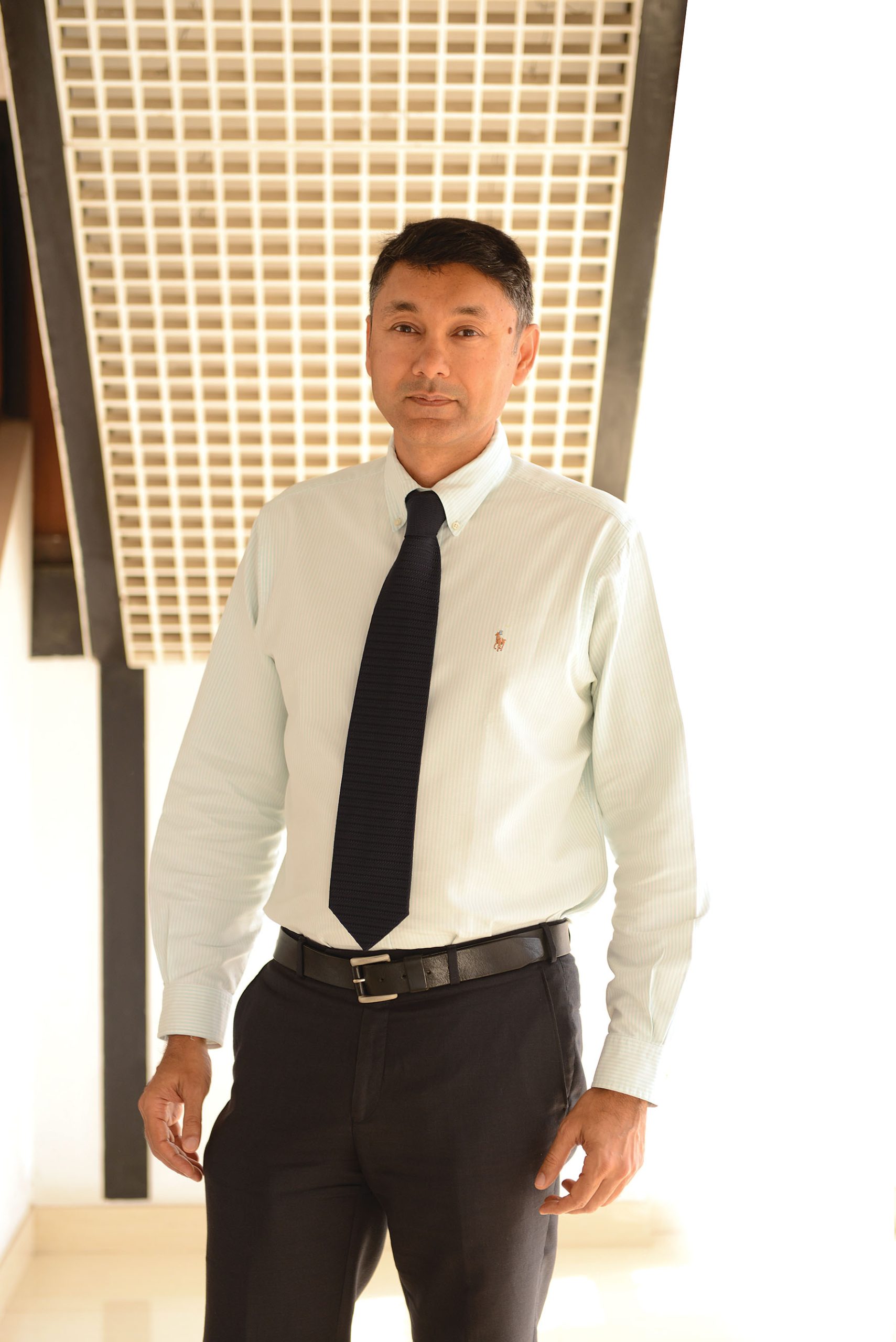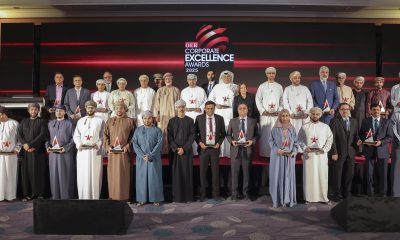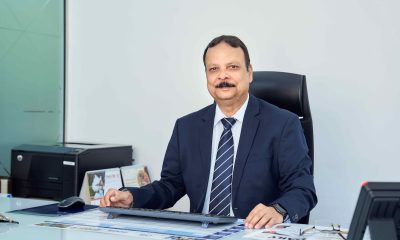Cover Story
Transparency is vital

Sameer Sampat played a seminal role in developing Naranjee Hirjee from a trading company into a distribution-driven, multi-faceted conglomerate. Excerpts from an interview with Muhammed Nafie
into a distribution-driven, multi-faceted conglomerate. Excerpts from an interview with Muhammed Nafie
Can you give us a brief on your roles and responsibilities at Naranjee Hirjee?
 I look after the food division as well as business development at Naranjee Hirjee. I have been involved with the food business of the company for the past 27 years. I am the eldest member of the fourth generation in the family business. Although I am in charge of the food division, I also help out other businesses within the family as and when required.
I look after the food division as well as business development at Naranjee Hirjee. I have been involved with the food business of the company for the past 27 years. I am the eldest member of the fourth generation in the family business. Although I am in charge of the food division, I also help out other businesses within the family as and when required.
Did you work outside the family business before joining the company and is there an induction process that is followed to bring the next generation of family members into the business?
I straightaway joined the family business after completing my graduation in Finance and Economics from India. It was 27 years ago and there was nothing that you can call a formal induction at that time. However, I spent the initial three years learning the nuances of the business. For me, it was important to understand the operations of the company, so I spent a lot of time going out in the market, meeting customers, talking to them and trying to understand the Omani culture. I spent nearly three years just driving around Oman, meeting people and trying to understand how things work over here. That was my induction which was more like a self-induction. Needless to add, I did have the support of the family and the senior management who were a guiding force.
As a young business leader, have you been able to bring in certain changes to the way the business is run?
When I joined the business, it was being run purely as a family trading corporation. The mentality was that of trading, as was the case with most of the businesses in Oman at that time. We developed it into more of a distribution-driven business over the years. We focused more on distribution, creating infrastructure, customer service, improving our logistics that changed the whole perspective of the company from being a trading company to a professionally driven distribution company. These efforts paid off well. The market dynamics have changed drastically in the past ten years and we are now getting the dividends for what we did about 15 years ago.
to a professionally driven distribution company. These efforts paid off well. The market dynamics have changed drastically in the past ten years and we are now getting the dividends for what we did about 15 years ago.
How easy/difficult was it for you to convince the third generation about the rationale of such steps?
There was some reluctance in the beginning which is quite natural. So we approached it in a very different way. We convinced our seniors and tried out the changes in a phased manner. We did never go for an all-out change, but started doing small changes and once we started seeing the results, it was very easy to convince them and get their nod to go ahead. They were quite open-minded and always encouraged us to do something different. It was a matter of getting them convinced. It was a smooth transition as they have been quite understanding and cooperative.
What about the professionalisation of the company? Is the company run by professionals or still by the family members?
It’s a mix of both professionals and family members. We have professionalised the operations, but family members are also involved in the business. You can’t take the family out of business completely. However, as a family we have taken a back step by letting the professionals run the business; and we step in as and when there are some critical decisions to be taken.
Are there next generation family members waiting to join the business?
The first member from the fifth generation will be my son, who would probably be ready by 2019, if he decides to join the business after his graduation. But if he prefers to go for a Master’s degree, it will take five to six years for him to come to the business. Therefore, we have not really made any plan for it so far. But if he decides to come in, we know where we can fit him in.
Ours is a 112-year old company. Currently we have both third and fourth generation members in the business; but it’s the fourth generation members that run the entire business operations while the third generation members who are part of the senior management team take an overall view of how things are progressing within the organisation.
Is there a succession plan to ensure a smooth generational transition in the business? And what is the mechanism you put in place to ensure transparency?
As the families grow and more members get involved in the business, there is bound to be some clashes at some point of time. So we put in place a very transparent system to shield ourselves from that. Our style of running the business is very transparent where each one of us knows what the other person is doing. For instance, my cousins who are taking care of other divisions know what is going on in the food division and vice versa. We meet once in a month and have a very open discussion among ourselves, where we look at ways of taking the business forward.
If something goes wrong in a division, we will never do a blame game by pointing fingers at the person concerned. We assess it together and collectively look at the ways of resolving the issues and getting that division operate more smoothly. That has helped us very well. When you have transparency in place, you have no room for blame game which is one of the root causes of disputes in most of the family businesses today. Problems pop up when you are not clear in your communication. In our case, we have a very good understanding that we constantly communicate with each other and that we are very clear in our communication.. It makes a huge difference when there is openness and transparency within the members of the family and the management.
What is your future outlook and what are your plans for innovation at Naranjee Hirjee?
In terms of business growth, we forecast a growth of 10 to 12 per cent annually. Within the group, we put annual targets for each division individually, and the overall objective is to grow by 10 to 12 per cent.
Also we keep on tapping new opportunities and exploring new avenues of growth within our respective industries. For instance, we are looking to introduce new concepts in the restaurant segment. Recently, we have started a Japanese restaurant, Sumo Sushi & Bento, which we think has a lot of potential in Oman. It is taken care of by one of my cousins. While he is responsible for the day-to-day operations, I am fully involved because I have a vast experience in running Kamat and Daawat restaurants.
-

 Banking & Finance2 weeks ago
Banking & Finance2 weeks agoOman Oil Marketing Company Concludes Its Annual Health, Safety, Environment, and Quality Week, Reaffirming People and Safety as a Top Priority
-

 Economy2 months ago
Economy2 months agoMaal Card: What Oman’s New National Payment Card Means for Everyday Users
-

 Events2 months ago
Events2 months agoOER Corporate Excellence Awards 2025 Honours Entities and Innovations in Oman
-

 News2 months ago
News2 months agoSheikh Suhail Bahwan, Chairman of Suhail Bahwan Group, Passes Away
-

 News1 month ago
News1 month agoOIG Appoints New CEO to Lead Its Next Chapter of Excellence
-

 Economy2 months ago
Economy2 months agoOman Unveils Official Omani Rial Symbol in Landmark Move to Boost Global Currency Presence
-

 News1 month ago
News1 month agoReport: How India & The Middle East Are Exploiting Immense Economic Synergies
-

 Uncategorized1 month ago
Uncategorized1 month agoOman’s ISWK Cambridge Learners Achieve ‘Top in the World’ and National Honours in June 2025 Cambridge Series



























You must be logged in to post a comment Login